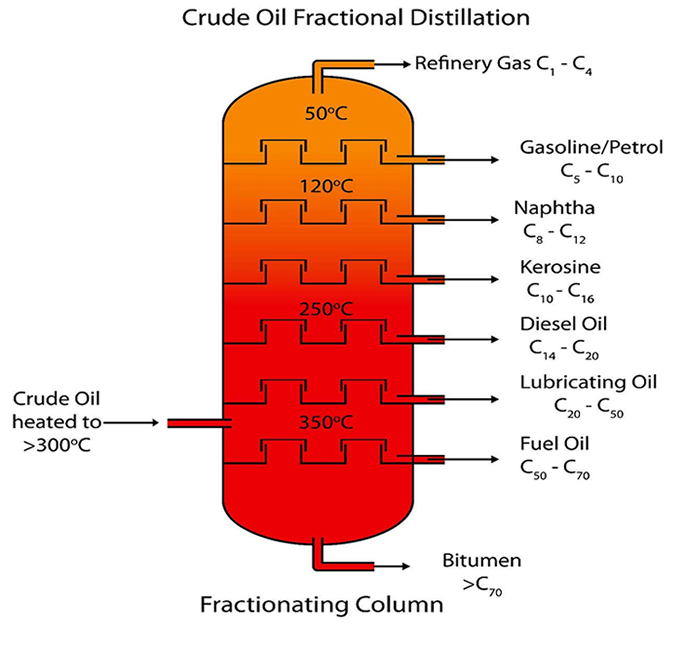
The operation of the fuel engine is inseparable from the protection of the lubricating oil. Looking at a fully loaded car whizzing past, from the perspective of personal safety and property safety, the maintenance of oil should pay more attention.As the engine oil increases, the engine oil is contaminated by high temperature oxidation, mechanical parts wear and fuel vapor corrosion. In addition, engine oil also contains a certain amount of consumption in normal use. Therefore, it is necessary to regularly check the oil level and the degree of contamination to ensure that the engine works under good working conditions. So, what factors will make the oil deteriorate?
Water infiltration into the engine oil
When the motor has a wet cylinder liner perforation, cylinder liner waterblock damage, oil radiator damage, cylinder gasket damage, cylinder head damage, etc., the cooling water will enter the engine oil, making the engine oil emulsified and deteriorated. This situation can be judged by observing whether the coolant is excessively consumed excessively or whether the oil is emulsified by water. The oil contained in the oil will accelerate the formation of the sludge, and the oil will be degraded (commonly known as aging). At this time, the oxidation resistance and dispersibility of the additive are weakened, and the formation of the foam is promoted, and the oil becomes an emulsion, which destroys the oil film. Tests have shown that when the moisture reaches 1%, the wear rate of the parts will increase by 2.5 times.
Poor crankcase vent or air resistance
When the engine is working, there will always be some flammable gas and exhaust gas entering the crankcase through the gap between the piston ring and the cylinder wall. This phenomenon will be more serious if the piston ring is seriously damaged. The fuel vapor entering the crankcase will condense and dilute the oil. The acid and water vapor in the exhaust will erode the parts, and the machine will not gradually dilute, age and coke, making the oil performance deteriorate. In addition, the gas entering the crankcase will increase the temperature and pressure inside the tank, causing the engine oil to seep out from the oil seal, gasket, etc.; Due to the reciprocating motion of the piston, the gas pressure in the crankcase periodically changes, affecting the normal operation of the engine, and in severe cases, the engine oil in the crankcase is sucked into the combustion chamber and the cylinder head cover. To this end, the diesel engine is specially equipped with a snorkel (snorkel) to balance the pressure inside and outside the crankcase, thereby extending the use time of the oil. When the crankcase vent hole is poor or generates air resistance, it will accelerate the oxidative deterioration of the engine oil.
Motor overheating
Insufficient cooling water was the main cause of the engine overheating, too much in the cooling system scale, the water pump failure to disrupt cooling water circulation, sundry jam radiator, radiator cap and section probe is bad, fan belt is too loose or broken, hot season long running large load, the influence of the combustion chamber carbon deposit and insufficient oil lubricating oil system, etc. When the engine overheats, it will cause the oil temperature to rise, thus accelerating the deterioration of the oil. When the engine oil is operated under high temperature and high pressure, its oxidation stability deteriorates, which exacerbates the processes of thermal decomposition, oxidation and polymerization. In the case of high temperatures, the oil is mixed with incompletely burnt products, condensed water vapor, and dust entrained in the intake air, which will cause the engine to deteriorate faster.
Mix different engine oil brands
Different types of engine oils, besides their different viscosity grades, have different chemical compositions, mainly due to the variety and quantity of additives that make up the oil. In general, the variety and quality grade of oil are divided according to the variety and quantity of its additive components. Because different types of additives have different chemical properties, oils with different types of additives cannot be mixed, otherwise it may be in the oil. The chemical reaction of the additive causes the performance of the oil to drastically decrease and accelerate deterioration.
Oil model is not used correctly
Due to the different technical conditions and performance requirements of different types of engines during operation, the required oil models are also different. If the oil used in the engine does not meet the requirements, it will cause normal operation, resulting in accelerated deterioration of the oil.


